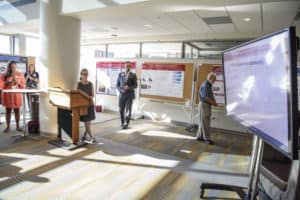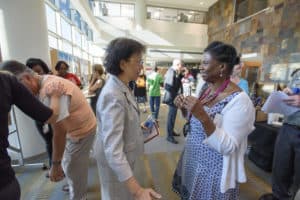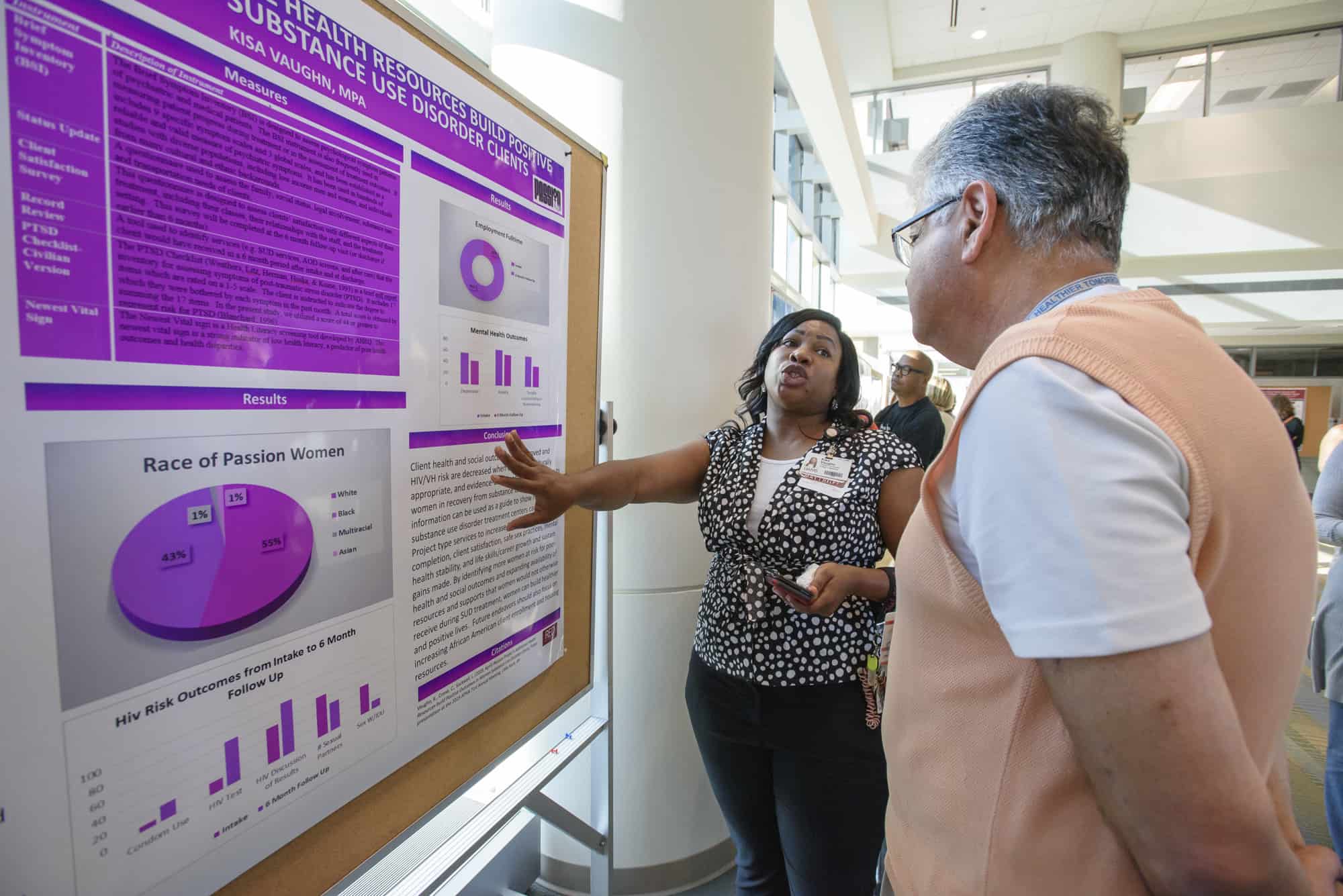Showcase Affirms Maturity of Community-Engaged Research at UAMS
| Kate Stewart, M.D., MPH, was smiling as she gestured toward the room packed with community engagement-themed research posters at the Sept.

Kate Stewart, M.D., M.P.H., led attendees through survey questions about community-engaged research that they answered on their smartphones, providing instant results.
25 UAMS Showcase of Medical Discoveries.
“Community-engaged research has grown a lot in the 22 years I have been here,” said Stewart, who leads the UAMS Translational Research Institute’s Community Engagement Program. “We would not have been able to do this 22 years ago, so it’s very exciting to me.”
In fact, there were more poster applicants than organizers had room to display.
Shuk-mei Ho, Ph.D., UAMS vice chancellor for research, approached Stewart about having the community-engaged theme for the Showcase.
“Community-based research is going to be in all of our research going forward,” Ho told attendees at the Showcase.
Involving the community as partners is already helping researchers generate exciting new hypotheses and questions to address health, she said.

Showcase sponsor Shuk-mei Ho, Ph.D., (left) vice chancellor for research, chats with Pebbles Fagan, Ph.D.
“Researchers are receiving grants because they are able to understand the community in such a deep manner,” Ho said. “Community-engaged research also ties in really well with our efforts to address rural health issues and disparities in health care using digital health technologies such as smart phones, interactive live video, wearable devices and personal computers.”
She also noted that UAMS researchers have been extremely successful in winning Patient-Centered Outcomes Research Institute (PCORI) grants, established under the 2010 Patient Protection and Affordable Care Act to advance community-based/engagement research.
Among the poster presenters, Keneshia Bryant-Moore, Ph.D., APRN, FNP-BC, associate professor in the UAMS College of Public Health, has been the recipient of numerous PCORI grants. Her research has focused on developing a network of faith leaders across Arkansas to address depression and other health disparities for African-Americans.

Tiffany Haynes, Ph.D., (left) and Keneshia Bryant-Moore, Ph.D., A.P.R.N., with their poster about developing a statewide network of faith leaders as research partners.
The poster she was presenting with her colleague, Tiffany Haynes, Ph.D., assistant professor in the College of Public Health, speaks to their efforts to increase the number of faith-based partners by training them to become partners and co-investigators on research.
The poster was accepted for presentation at a recent PCORI conference and was well received, Bryant-Moore said.
“We were approached by a number of people from across the United States that were interested in the program,” she said, adding that she plans to apply for a PCORI award that will allow her team to disseminate tool kits and trainings on the program beyond Arkansas.
Stewart, a professor in the College of Public Health, noted that community-engaged research is critical to addressing fear and distrust of research due to past unethical treatment of research participants, especially minorities.

Pearman Parker, Ph.D., M.P.H., presents her poster on the role of health literacy with chemotherapy knowledge in women with breast cancer.
She was presenting a poster that showed her team’s work leading the UAMS Community Scientist Academy, a Translational Research Institute program.
“It’s really taken off,” she said of the academy, which invites the public to learn about the process of research at UAMS. “We’re giving them a 30,000-foot level introduction to the process, and the reason for the process. A lot of times for people in the community, research needs to be demystified, so we also give them an opportunity to meet and interact with our researchers.”
